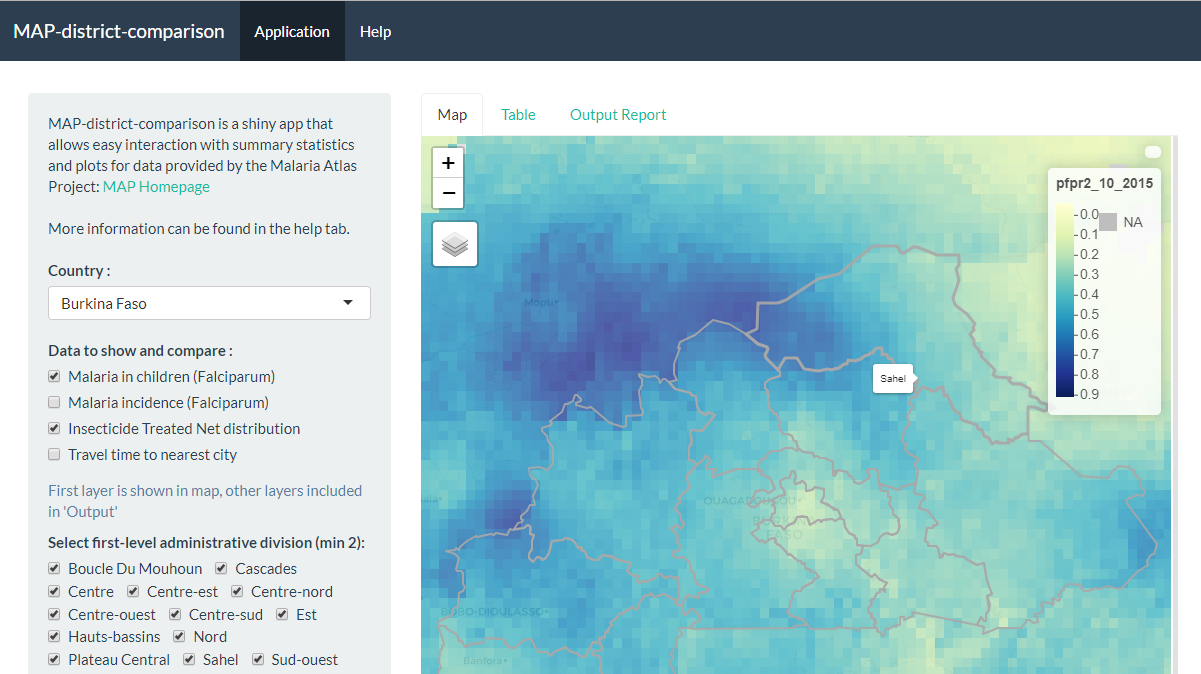
Three LSTM researchers (two of them PhD students) have taken second place in the Wellcome Data Re-use Prize : Malaria for reusing data from the Malaria Atlas Project (MAP). The LSTM team, Joshua Longbottom, Sean Tomlinson and Andy South, created a user-friendly, open-source web interface to view the data and enable district level comparisons for all African countries in relation to malaria control.
With the winners announced by the Wellcome Trust on World Malaria Day, LSTM’s team was awarded £5,000, have been invited to publish in Wellcome Open Research and to present the work at an upcoming event at the London School of Hygiene and Tropical Medicine. Joshua and Sean are PhD candidates under the MRC DTP programme, Andy is a post-doctoral researcher.
The team used the programming tools R and Shiny to develop an online user interface that displays maps and tables allowing malaria indicators to be compared and districts ranked. The code is open-source and freely available so that others can use components or modify. The interface is useable on mobile devices too although it wasn’t explicitly designed to be. The team are keen to explore opportunities develop this and similar applications further, they have recently been instrumental in setting up an R-user group within LSTM.
Joshua said: “We hadn’t collaborated before, this prize presented the perfect opportunity to combine our shared interests and skills. We are delighted to have been awarded second place and look forward to the opportunity to further develop the application so that it can be of use to those tasked with making decisions on the ground.” Sean added : “We need to maintain the usability, so that the functionality remains within scope for those who are using it, in particular local decision makers. Ultimately, I think this application shows the power of having a graphically interactive interface for large and important datasets”. Andy said : “This was an opportunity to demonstrate the power of R to create online interfaces to make data more accessible and useful. The beauty of open-source software is that the code is available for others to modify. We hope it helps the journey towards greater use of these kinds of data in operational contexts.”